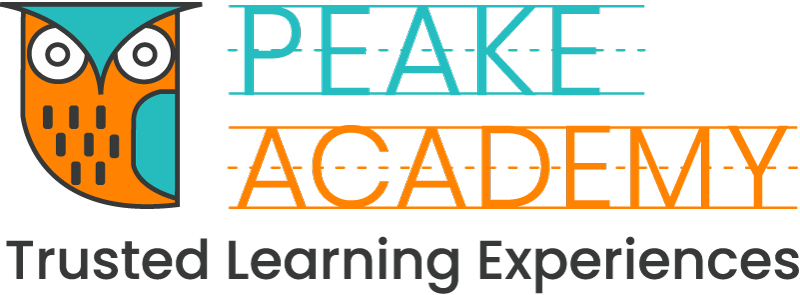Prioritizing What Matters: Family Goals for a Successful Preschool Experience
Starting preschool is a significant milestone for both children and their families. It's a time of growth, learning, and development, not only for the child but also for the entire family. By setting and achieving intentional family goals, you can ensure a successful and enriching preschool experience, creating meaningful memories along the way. Here are some essential family goals to focus on to make the most of this exciting time.
1. Establish a Consistent Routine
One of the most crucial goals for a successful preschool experience is to establish a consistent daily routine. Children thrive on predictability, and having a set schedule helps them feel secure and understand what to expect each day, supporting their developmentally appropriate practices.
Tips:
Morning Routine: Develop a morning routine that includes waking up at the same time, having breakfast, and getting ready for school. This sets a positive tone for the day.
Bedtime Routine: Ensure a consistent bedtime routine with activities like reading a story, brushing teeth, and winding down. Adequate sleep is crucial for your child’s development and readiness to learn.
Consistency: Stick to the routine even on weekends to maintain a stable schedule.
2. Foster a Love for Learning
Cultivating a love for learning early on is key to a successful preschool experience. Encourage curiosity and exploration to make learning enjoyable for your child and to support their preschool journey.
Tips:
Reading Together: Make reading a daily habit. Choose age-appropriate books and spend time reading together to develop language skills and a love for stories.
Educational Play: Incorporate educational toys and games that promote problem-solving, creativity, and critical thinking.
Ask Questions: Encourage your child to ask questions about the world around them and provide thoughtful answers. This fosters curiosity and a desire to learn.
3. Develop Social Skills
Preschool is often a child's first opportunity to interact with peers in a structured environment. Developing social skills is essential for building friendships and working collaboratively, laying the groundwork for kindergarten readiness.
Tips:
Playdates: Arrange playdates with other children to help your child practice sharing, taking turns, and communicating.
Role-Playing: Engage in role-playing activities that teach social interactions, such as playing house, grocery store, or doctor’s office.
Modeling Behavior: Demonstrate positive social behaviors like saying please and thank you and resolving conflicts calmly.
4. Encourage Independence
Promoting independence in daily tasks helps children build confidence and prepares them for the preschool environment, contributing to a time and freedom lifestyle for the whole family.
Tips:
Self-Help Skills: Teach your child to dress themselves, use the bathroom independently, and clean up after playtime.
Decision-Making: Allow your child to make simple choices, such as what to wear or what snack to have. This fosters decision-making skills and independence.
Praise Efforts: Encourage and praise your child’s efforts to complete tasks on their own, even if they don’t do it perfectly.
5. Communicate Openly with Teachers
Establishing a strong relationship with your child’s teachers is crucial for a successful preschool experience. Open communication ensures that you are informed about your child's progress and any areas that may need attention, creating a supportive preschool environment.
Tips:
Regular Check-Ins: Schedule regular check-ins with the teachers to discuss your child’s development, behavior, and any concerns.
Stay Informed: Participate in parent-teacher meetings and school events to stay informed about the curriculum and school activities.
Share Information: Provide teachers with relevant information about your child, such as any allergies, preferences, or recent changes at home.
6. Create a Supportive Home Environment
A supportive home environment is essential for a child’s emotional and intellectual growth. Ensure that your home is a place where your child feels safe, loved, and encouraged, aligning with your ideal preschool experience.
Tips:
Quality Time: Spend quality time with your child engaging in activities they enjoy. This strengthens your bond and provides emotional support.
Positive Reinforcement: Use positive reinforcement to encourage good behavior and effort. Celebrate your child’s achievements, no matter how small.
Safe Space: Create a safe and stimulating space at home for your child to play, explore, and learn.
7. Set Realistic Expectations
Setting realistic expectations for both yourself and your child can reduce stress and make the preschool experience more enjoyable, helping your family to grow together.
Tips:
Patience: Be patient with your child’s progress and understand that each child develops at their own pace.
Manage Expectations: Set achievable goals and celebrate progress rather than focusing solely on outcomes.
Self-Care: Take care of your own well-being. A calm and composed parent can better support their child’s transition to preschool.
8. Promote Physical Activity and Healthy Habits
Physical activity and healthy habits are crucial for a child’s overall well-being and ability to focus and learn, forming part of a holistic preschool experience.
Tips:
Active Play: Encourage active play through outdoor activities, sports, and dance. Physical activity promotes motor skills and overall health.
Healthy Eating: Provide nutritious meals and snacks to fuel your child’s body and mind. Involve your child in meal preparation to teach healthy eating habits.
Limit Screen Time: Set limits on screen time and encourage activities that promote physical movement and creativity.
9. Cultivate Emotional Intelligence
Helping your child develop emotional intelligence will equip them with the tools to manage their emotions and interact positively with others, essential for confident chaos coordination in preschool.
Tips:
Label Emotions: Teach your child to identify and label their emotions. Use phrases like “I see you’re feeling sad” to help them understand their feelings.
Coping Strategies: Provide coping strategies for managing difficult emotions, such as deep breathing, drawing, or talking about their feelings.
Empathy: Encourage empathy by discussing how others might feel in different situations and promoting acts of kindnes
10. Involve the Whole Family
Involving the whole family in the preschool experience can provide additional support and create a sense of community, enhancing the family focus.
Tips:
Family Activities: Plan family activities that reinforce learning, such as nature walks, museum visits, or educational games.
Share Responsibilities: Involve siblings in preparing for preschool and share responsibilities to lighten the load and foster teamwork.
Celebrate Milestones: Celebrate preschool milestones and achievements together as a family, creating lasting memories and a sense of accomplishment.
A successful preschool experience is built on a foundation of love, support, and thoughtful planning. By setting and achieving these family goals, you can create an enriching environment that nurtures your child’s growth and development. Remember, every child and family is unique, so tailor these tips to fit your needs and circumstances. Embrace this exciting journey and enjoy watching your child grow and flourish in their new preschool adventure.
Free Resource
Thank you for reading this content. And if you loved this post, please be sure to join our Parent Advisor Facebook group where we share more insights and community.
Set your family up for preschool success by focusing on what truly matters! Read our article and receive FREE First Day of School Affirmation Cards to inspire confidence and positivity in your child.
Everyone deserves self-care
The same goes for busy moms like you. So let's do it together and create a healthy habit!
Join the 30-Day Happy Mom Challenge Today!
Visit our Parent Advisor and The Buzz Blogs to learn more about related topics and parenting tips. You are welcome to join our private Parent Advisor Facebook group. It’s a growing community of parents and preschool teachers where you can learn and share more parenting tips.
Related Blogs
Kindergarten, Here We Come! Prepare your Preschooler with these 10 Essential Skills
Kindergarten Countdown: Ensuring Your Child is Ready for the Big Leap
First Day, Big Smiles: Confidence-Boosting Tips to Set Your Child up for Success
How to Gauge Your Child's Readiness for Kindergarten: Essential Skills Checklist
Kindergarten Readiness: 7 Tips for Preparing Your Preschooler for a Successful Start
No Experience Required: Thriving in the Chaos of Preschool Preparation












